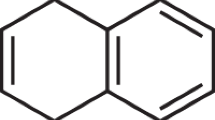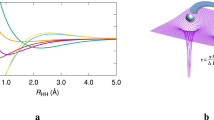Abstract
THE modern applications of wave mechanics to molecular structure, and in particular the method of molecular orbitals developed by Mulliken and Lennard-Jones, have shown that it is not expedient to treat the individual links between atoms separately, and that the electrons in the molecule must be treated as a whole. The organic chemist, on the other hand, regards the molecule as held together by links from atom to atom, and the only distinction in kind which he recognises among links is into single, double and triple; and his method of representation is found to be capable of providing different formulæ for every experimentally distinct chemical substance; indeed it sometimes provides two formulæ for one substance, as with inseparable tautomers.
This is a preview of subscription content, access via your institution
Access options
Subscribe to this journal
Receive 51 print issues and online access
$199.00 per year
only $3.90 per issue
Buy this article
- Purchase on Springer Link
- Instant access to full article PDF
Prices may be subject to local taxes which are calculated during checkout
Similar content being viewed by others
Author information
Authors and Affiliations
Rights and permissions
About this article
Cite this article
SIDGWICK, N. Wave Mechanics and Structural Chemistry. Nature 133, 529–530 (1934). https://doi.org/10.1038/133529b0
Issue Date:
DOI: https://doi.org/10.1038/133529b0
Comments
By submitting a comment you agree to abide by our Terms and Community Guidelines. If you find something abusive or that does not comply with our terms or guidelines please flag it as inappropriate.



